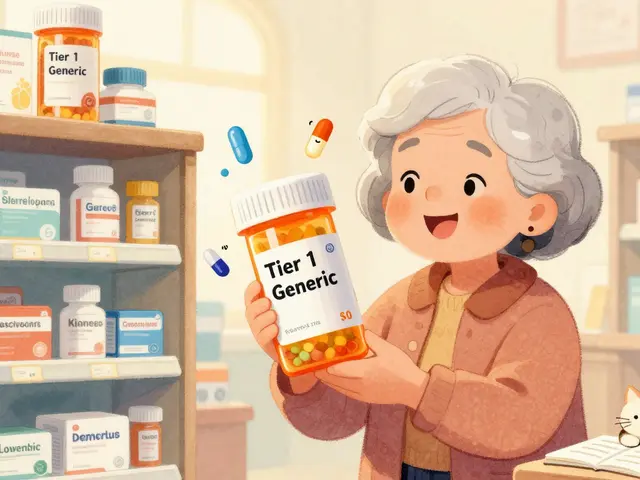
Cardiac Drugs: Your Quick Guide
When talking about cardiac drugs, medications that treat heart‑related conditions such as high blood pressure, arrhythmias, cholesterol issues, and clotting disorders. Also known as heart medicines, they are essential for keeping the cardiovascular system running smoothly and preventing serious events like heart attacks or strokes. Understanding what these drugs do, how they differ, and when they’re prescribed helps you make informed choices about your health.
One of the most common groups is beta blockers, drugs that slow the heart rate and reduce the force of each beat. They’re often used after a heart attack or for chronic high blood pressure. By blocking adrenaline’s effect, beta blockers lower the workload on the heart, which can prevent future attacks and improve survival rates. For many patients, choosing the right beta blocker means balancing dosage with potential side effects like fatigue or cold hands.
Broadening the Picture: Cholesterol, Blood Vessels, and Blood Clots
Another key player in heart health is statins, cholesterol‑lowering meds that target LDL levels in the blood. High LDL is a major risk factor for plaque buildup, which can narrow arteries and trigger heart attacks. Statins work by inhibiting the enzyme HMG‑CoA reductase, cutting cholesterol production at its source. While they’re highly effective, some people experience muscle aches or need regular liver tests.
Working alongside statins are ACE inhibitors, drugs that relax blood vessels by blocking the conversion of angiotensin I to angiotensin II. This relaxation lowers blood pressure and eases the heart’s pumping effort. ACE inhibitors are a first‑line choice for many with hypertension, heart failure, or diabetic kidney disease. They also have a protective effect on the kidneys, which adds extra value for patients with multiple health concerns.
Rounding out the core categories are anticoagulants, medications that thin the blood to prevent clots from forming in arteries and veins. Conditions like atrial fibrillation, deep‑vein thrombosis, or a history of stroke often call for anticoagulant therapy. By interfering with the clotting cascade, these drugs reduce the risk of life‑threatening blockages, but they require careful monitoring to avoid excessive bleeding.
All these drug classes are linked: cardiac drugs encompass beta blockers, statins, ACE inhibitors, and anticoagulants; each class addresses a different aspect of heart health—rate control, cholesterol management, vessel relaxation, or clot prevention. Together they form a comprehensive strategy that doctors tailor to an individual’s risk profile and lifestyle. Below you’ll find a curated set of articles that dive deeper into how each type works, what side effects to watch for, and practical tips for safe use. Use this collection to sharpen your understanding and take confident steps toward better heart health.
-
3 Oct







